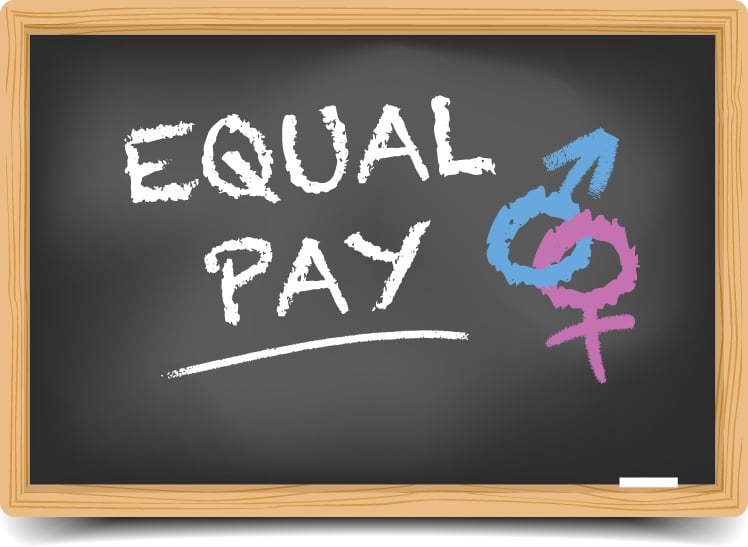 For over fifty years there have been laws in place requiring equal pay for men and women doing the same job. Even so, discrepancies in pay still persist. In California, where the new equal pay law, the Fair Pay Act, went into effect the first of the year, data introduced into legislation shows women being paid 84 cents for every dollar made by their male counterparts.
For over fifty years there have been laws in place requiring equal pay for men and women doing the same job. Even so, discrepancies in pay still persist. In California, where the new equal pay law, the Fair Pay Act, went into effect the first of the year, data introduced into legislation shows women being paid 84 cents for every dollar made by their male counterparts.
The Fair Pay Act, voted in with virtually no opposition, aims to make it harder for employers to require employees to do the same work, but pay some workers less because of job titles. Now, companies will be required to really take a look at each position, and the work required, and assess pay based upon the work actually being done. Rather than justifying pay with job titles, employers will need to thoroughly assess job responsibilities and requirements.
This new law may be most beneficial to those in positions typically classified as laborers such as housekeepers. In this example, a housekeeper commonly does the same work as a custodian, but because of their job title, is paid a lower rate.
Pay inequality may exist due in large part to the fact that people don’t know they’re being under paid. Within most companies, the culture is such that discussing pay is strictly prohibited. The Fair Pay Act prevents employers from terminating or punishing workers who discuss their pay with coworkers.
Some companies started assessing their pay structure before the law went into effect, however, this process can prove to be time consuming and difficult. Within most organizations, their payroll systems do not have the capability of capturing information in order to assess things like seniority, experience, and education. These factors have a significant impact on differences in pay. Additionally, when doing a pay audit, the information is based upon a job title and job description, which doesn’t necessarily evaluate how the role is similar to other positions. It can be time consuming to document the differences in each position and confirm that there are legitimate reasons outside of gender contributing to differences in pay.
Should an employer be put in the position of having to defend themselves, they will need to prove the reasons behind the pay differences. These differences, like seniority, quality of work, education, and skill level, will have to make up one hundred percent of the reasons for the pay gap, and prove that gender was not a factor whatsoever.
There is some fear that this new law will make it fairly easy for employees to sue their employers. Attorney Anthony Oncindi was quoted in an article on Inside Counsel, published in January 2016, advising employers on things they should be doing if they haven’t already:
- Train managers and supervisors to document the reasons for paying their employees what they do.
- Detail the skill required, effort expended, responsibility given, seniority, merit, quantity and/or quality of work.
- Create or improve internal complaint procedures so that potential problems can be addressed before escalating to litigation proceedings.
- Consider adopting mandatory arbitration agreements for all employees, which include enforceable class and collective action waivers.
- Train managers and supervisors about the details of the new law and ensure that compliance is a factor when evaluating these leaders.
Prior to the law going into effect, there was talk of a gender pay gap in the tech industry, and some companies in Silicon Valley started assessing their pay structures. In general, there weren’t too many disparities, but some tech companies did take a serious look at their pay equity and did end up raising some salaries of both women and men.
There are reasons in pay differences that are permissible per the Fair Pay Act. Employers need to be able to demonstrate that these pay differences are based upon:
- A Seniority Based System
- A Merit Based System
- Earnings Measured Based Upon Quantity or Quality of Production
- Education, Experience, or Training. (This applies only if the employer can prove that it is not based upon a gender-based difference in pay, is directly related to the position, and is consistent with the needs of the business. This would not apply if the plaintiff can prove that another business practice can serve the same business purpose without the difference in pay.)
Legislation to pass a bill like the Fair Pay Act nationwide has been stalled in congress, currently leaving it to each state to handle individually. California is the first state to pass a bill of this kind. Similar progress has been made in other states, however. New York has signed legislation allowing employees to discuss their wages with coworkers, Delaware signed a bill requiring female workers contracted with the state be paid equally, as did Oregon, and Missouri is requiring state agencies to assess any gender-based wage differences and to make necessary adjustments. Other states poised to potentially pass similar bills are Colorado, Maryland, Massachusetts, and Washington.
Learn how to attract the best applicants with The Applicant Manager’s ATS.


 For over fifty years there have been laws in place
For over fifty years there have been laws in place 